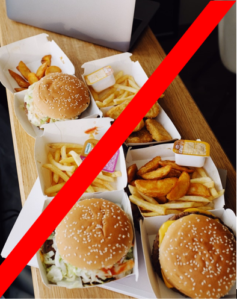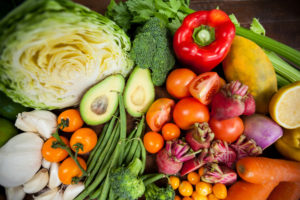 Have you – or someone you know – ever had…
Have you – or someone you know – ever had…
A burning sensation in the chest, just behind the breastbone?
A sour taste in the mouth, or lump in the throat?
Chronic cough, laryngitis, new or worsening asthma or disrupted sleep?
It may be GERD!
Any of these may be signs of gastro-esophageal reflux, where the muscular ring at the bottom of the esophagus (called the lower esophageal sphincter, or LES) relaxes on the job, and allows food to back up into the esophagus.
Everyone may experience this occasionally (after a large rich meal, for instance), but if it occurs more than twice a week, a doctor may diagnose you with Gastro-Esophageal Reflux Disease (called GERD).
Why the esophagus can’t handle it!
The stomach lining is typically well suited for housing its high acid food contents, while the lining of the esophagus is not, hence the irritation and damage when food refluxes. Getting a handle on this is important because the consistent burning of the esophageal lining can lead to a precancerous condition called Barrett’s esophagus. One of our very dear clients tragically lost her beloved brother due to esophageal cancer, simply because he did not heed the warning signs and do something about his heartburn. We want to help prevent this from happening to you or someone you love.
What causes GERD?
 The prevalence of GERD is increasing worldwide although there are marked differences in the prevalence, ranging from 2.5% in Eastern Asia, up to 25.8 % in North America. (Explains why we are bombarded with acid reflux commercials now doesn’t it?!) Experts speculate the increase may be due to:
The prevalence of GERD is increasing worldwide although there are marked differences in the prevalence, ranging from 2.5% in Eastern Asia, up to 25.8 % in North America. (Explains why we are bombarded with acid reflux commercials now doesn’t it?!) Experts speculate the increase may be due to:
- Rise in obesity
- Our excessive intake of processed foods
- Lifestyle factors (including uncontrolled stress)
You knew this was coming…don’t think medications (with their negative side effects) are your only option…food plays a major role in managing acid reflux symptoms! We have gathered expert advice from the Mayo Clinic, Cleveland Clinic, the Academy of Nutrition and Dietetics, and Dr. Weil to help you learn how you can heal yourself from GERD.
What can you do to reduce acid reflux symptoms?
Keep in mind, maintaining a healthy weight is extremely important because excess weight can increase your stomach pressure and therefore increases the risk of stomach contents leaking into the esophagus. So, losing weight (if you need to lose weight) and managing your stress, will have a huge impact on your success. The following is your best chance at getting your “LES” to work properly again and reduce acid reflux symptoms:
- Have an eating “cut off time.” Considering that it can take several hours for your stomach to empty after a meal, try to not eat for a full 3 hours before bed. Set a recurring alarm to remind you every evening…”it’s time to stop!”
- Become a “nothing fried” person. Fried chicken, French fries and fatty meats have a “relaxing effect” on the LES muscular ring.
 Be mindful of these trigger foods. These foods can increase symptoms either because of their acidity or because they have a relaxing effect on the LES: caffeine, highly acidic citrus fruits and juices (such as oranges and grapefruit), chocolate, coffee, spicy foods (including pepper, cayenne and even cinnamon), tomatoes and tomato sauces, onions, garlic, and mint (so skip the after dinner mint or gum). Through trial and error, you can determine if any of these foods trigger your symptoms.
Be mindful of these trigger foods. These foods can increase symptoms either because of their acidity or because they have a relaxing effect on the LES: caffeine, highly acidic citrus fruits and juices (such as oranges and grapefruit), chocolate, coffee, spicy foods (including pepper, cayenne and even cinnamon), tomatoes and tomato sauces, onions, garlic, and mint (so skip the after dinner mint or gum). Through trial and error, you can determine if any of these foods trigger your symptoms.- Portion control. Use smaller plates to control your portions and eat ONLY until you are “no longer hungry.”
- Eat small frequent meals. Larger meals can increase stomach pressure.
- Be mindful. Chew your food well and eat slowly.
- Drink water! Substitute water for soda and alcohol.
- Increase your fiber intake! Aim for at least 30 grams of fiber a day from a variety of REAL FOODS, vegetables, fruits, whole grains, nuts and beans.
What are the best REAL foods to combat acid reflux symptoms?
- High fiber fruits. Bananas, apples, pears, peaches, berries, avocados and melons are high in fiber, low in acidity, and high in magnesium, which is the combination found in many medicines for acid reflux.
 Acid absorbing foods. Oatmeal, whole grains (such as barley, quinoa, and farro), potatoes and sweet potatoes help prevent acid reflux symptoms by absorbing acid in the stomach.
Acid absorbing foods. Oatmeal, whole grains (such as barley, quinoa, and farro), potatoes and sweet potatoes help prevent acid reflux symptoms by absorbing acid in the stomach.- Green veggies. Cucumbers, asparagus, broccoli, spinach, kale, Brussels sprouts are not only high in magnesium, but are also highly alkaline and reduce stomach acid.
- Fermented and probiotic foods. Yogurt, kefir, kimchi, kombucha, sauerkraut and pickles are all rich in probiotics, the type of good bacteria that our digestive tract desperately needs but is often lacking. Make sure yogurt states ‘live yogurt cultures” for the most benefit.
Even more tips! Try these lifestyle tips to help as well:
- Maintain an upright posture after eating. Use gravity to your benefit, not your detriment.
- Raise the head of your bed by elevating the legs of the bed. This will be more effective than just propping up pillows.
- Move every day! Schedule some type of physical activity every day – even walking is beneficial.
- Relax and take a breath! Have time to relax every day. Even if it is just 10 minutes to decompress, it will help relieve stress.
As you can see, WHEN you eat, HOW MUCH you eat, and WHO you are (how stressed you are), go hand in hand with WHAT foods you eat.
We don’t want these tips to be overwhelming, but rather, empowering, as you realize there are many things you can do to improve an acid reflux condition. Simply pick one, two or three things to start doing, and you are likely to see results within just a few weeks, if not days!
Do you have experience in managing GERD?
What foods have you found to help?
References:
https://www.worldgastroenterology.org/wgo-foundation/wdhd/wdhd-2015
https://newsnetwork.mayoclinic.org/discussion/home-remedies-manage-discomfort-of-heartburn/
https://www.mayoclinic.org/diseases-conditions/gerd/symptoms-causes/syc-20361940
https://www.eatright.org/health/wellness/digestive-health/gastroesophageal-reflux
https://www.aarp.org/health/conditions-treatments/info-2017/foods-help-acid-reflux-fd.html




Leave A Comment